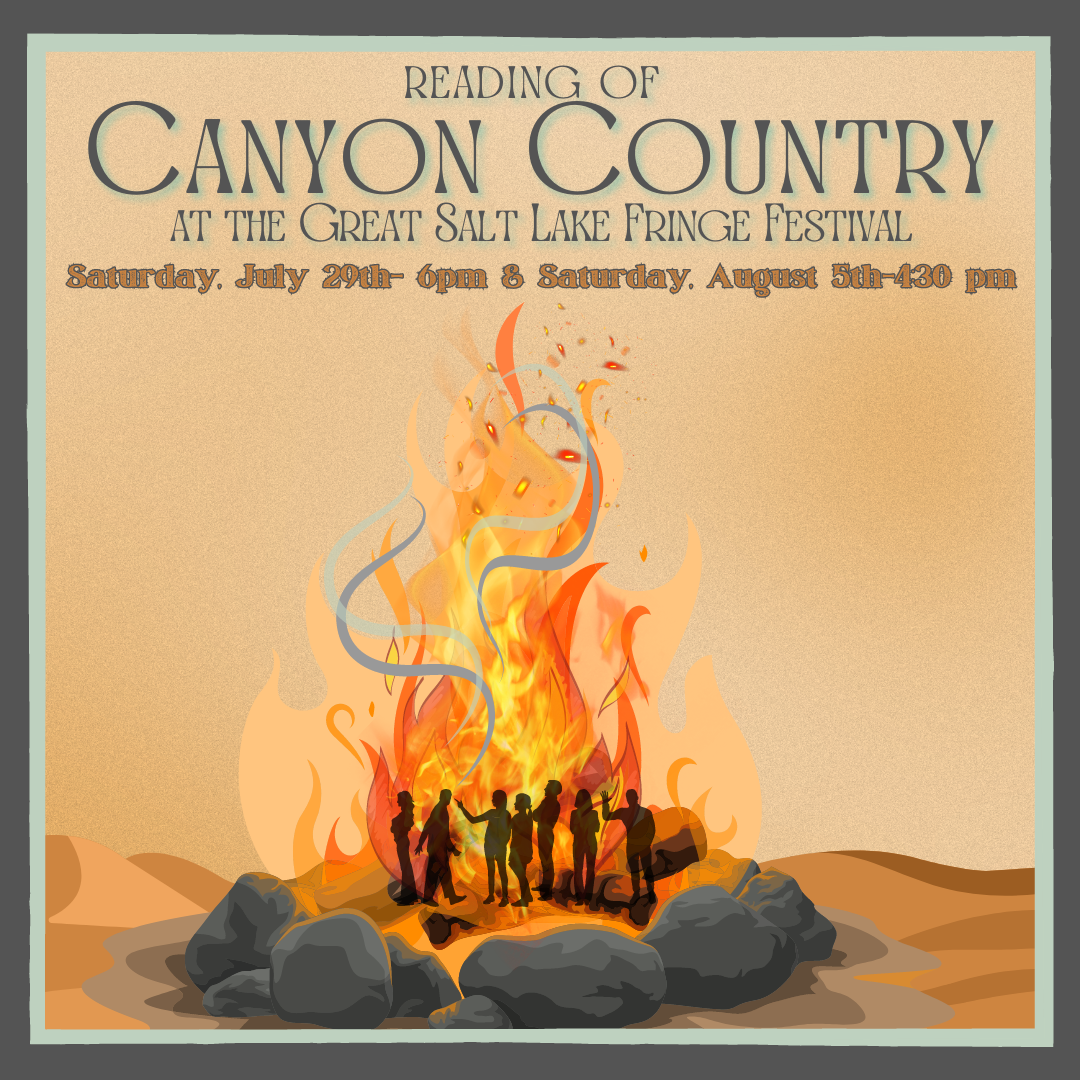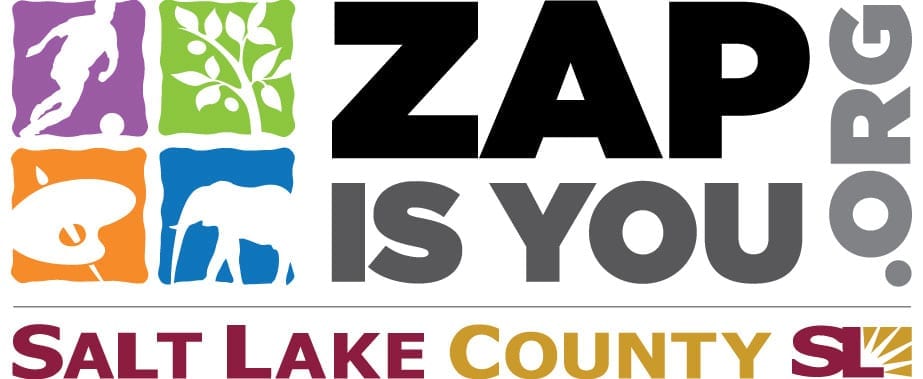SALT LAKE CITY — Local playwright and actress Olivia Buck Smith brings multiple entries to this year’s Fringe Festival. In her Canyon Country seven characters get stranded overnight in a remote camp site somewhere near the Colorado river in the aftermath of a flash flood. They are three couples and a young man who represent some of the stereotypical Utahns from across the political and cultural spectrum.

Other than a shared love for the beauty of the back country, there is little they have in common. Wynter and Kaden (played by Olivia Buck Smith and August McVale) are a young and newly engaged LDS couple. Sadie and Jade are a lesbian couple who have transplanted from other states (played by Comet Higley and Macey Shackelford, respectively). Sara and Marcus are a mixed ethnicity couple who are eager to start a family. Already at the campsite the couples, all fleeing the rising flood, find the teenaged Elias (played by Isaac Trinidad-Martinez) camping suspiciously alone. The characters begin to measure one another up based on their assumptions, when an medical emergency suddenly forces them to make some critical decisions together.
The actors were all excellent in their roles. The fact that the script is presented as a staged reading, rather than a full production, did not limit their power as excellent performers. Director E. Javier Flores has mastered many simple, yet effective staging techniques. His work is especially impressive in the use of small details that aided the actors in establishing their characters.
While there is fodder for easy jokes and gimmicks in this kind of “strangers stuck together” premise, Buck Smith instead leans heavily into political and cultural exploration. The characters speak effusively, debating in lovely rhetorical style. They answer one another with fully formed, and perfectly thought-out arguments and rebuttals, just as everyone dreams of doing. Buck Smith’s goal, to complicate each of the character’s identities, is overt. And while it is nice to see a story where the only real antagonist is time, the script veers into sentimentality as each character embraces an opportunity to reveal their unique and heart-touching backstory, just as they are willing to go head to head in debating their beliefs. The voices, though representing a range of backgrounds, still shared similar tones and styles of speech. Additionally, their open hostility and confrontational language about politics during an urgent medical emergency disregarded the very common human desire to avoid conflict with strangers. While there is certainly value in what the script is up to, more refinement is needed to really give it the power it is reaching for.
[box]Canyon Country is part of the Great Salt Lake Fringe Festival, which is playing through August 5, 2023, at various times at the Alliance Theatre (602 East 500 South, A103, the Annex, Salt Lake City). Tickets are $15. For more information, visit greatsaltlakefringe.org.[/box]

